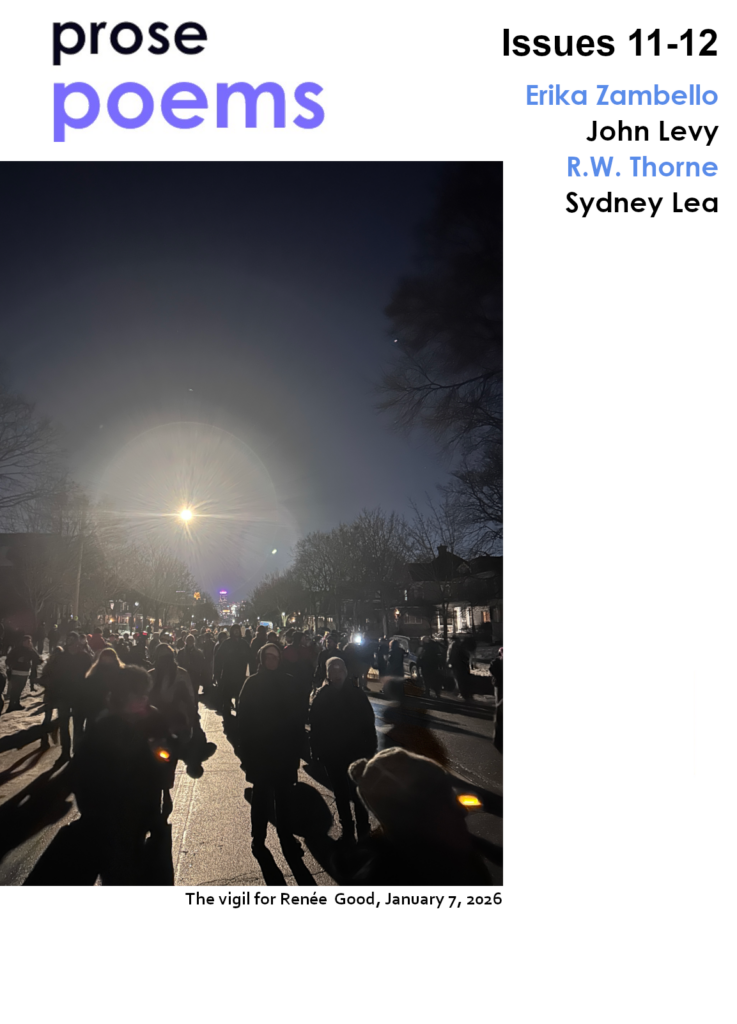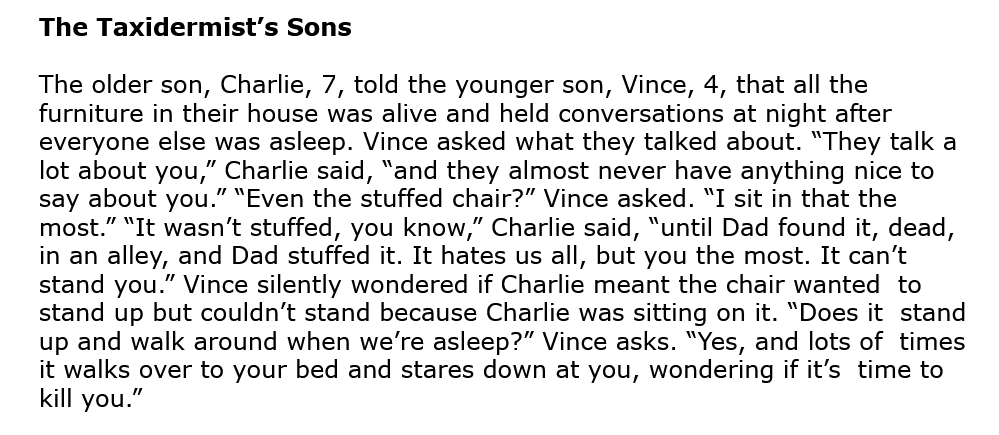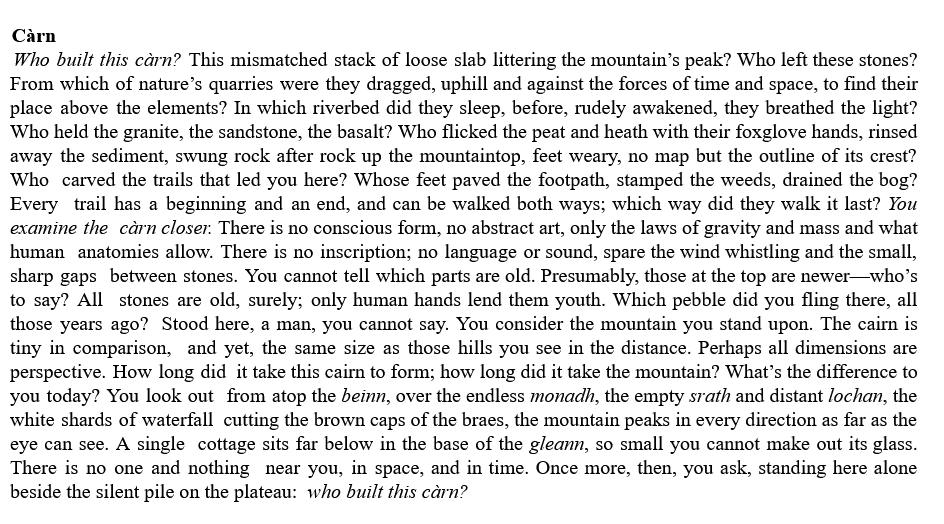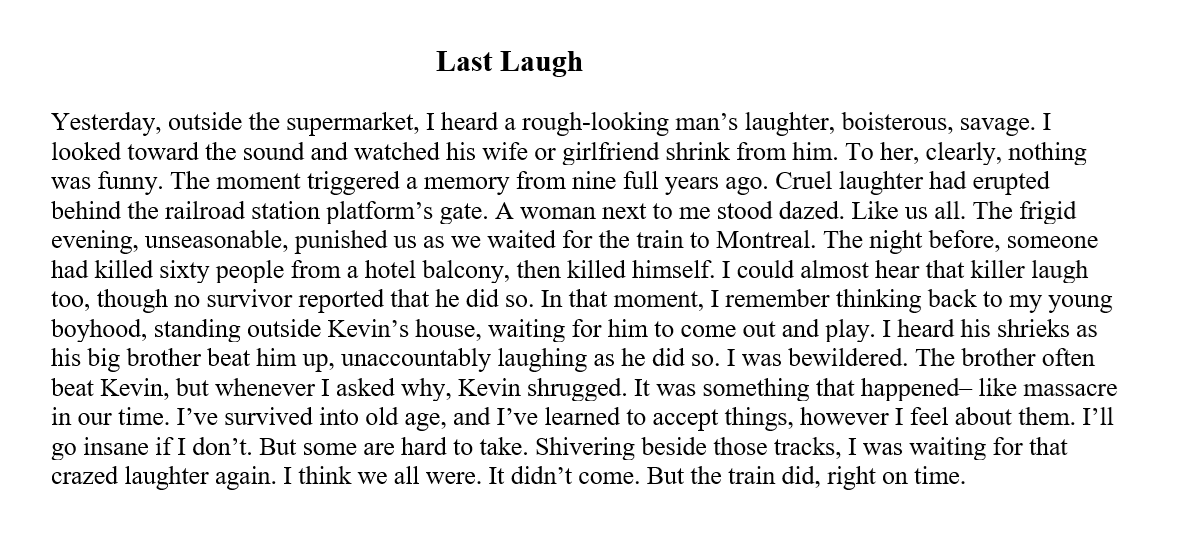
A Different Sort of Minnesota Winter
It’s normal now to take a wrong turn, on purpose, after dropping your kid off at school, to look for SUVs or trucks with out-of-state plates and tinted windows. They wait outside bus stops, school pickup lines, food banks, churches. It’s normal now to drive with the radio off, so you can hear cars honking or the sharp sound of a whistle in the distance. And it’s normal now, if you pay close enough attention, for them to visit you—a black Dodge Charger in front of your house, with its lights off, but idling, speeding away once noticed.
It’s normal now for the people with long guns and masks and pepper spray and tear gas to say that whistles and pun-filled signs (Ice is Slippery and Dangerous!) are the true threat. A whistle is a small thing, but so is the word no. That is what they are afraid of—of being outnumbered—not by some imagined invasion of migrants, but by a chorus of dissent, tens of thousands of people who know what is happening is wrong.
BRETT ORTLER
Today
I learned that you can ship fish in the mail. It’s true. My dad received two orange, adult angelfish—a mated pair—in a soft bag full of water. Protected from winter in New England, their plastic-wrapped home came further ensconced in hand-heaters. The seller had to wait and ship on a warm day; at least warm by December standards. This feels like a metaphor, right? That the fish are us and their shipment is a journey and the handwarmers are… I don’t know. A reference to Dante’s Inferno? An allusion to climate change? This is a poem after all. But, nope: Two angelfish in a brown, square, UPS package are just the quickest way to move a pair of pets from Vermont to Maine.
It’s Sunny
and snowing and cold here on the coast. I didn’t know it could be sunny and snow at the same time— light absorbed by flakes and dashed across my retinas. The whole world is gold, from the shimmering waves to the stone jetties to the eyes of the ducks that swim in the shallows. Everything is frozen—or maybe I’m just frozen, as the wind has pushed the temperature down below zero. But I don’t mind. Instead, I concentrate, intent on capturing this moment in my memory. I want to happen upon it again, years from now, déjà vu in some other place. A stiff wind, a blinding reflection, the smell of salt – and time suspends, like the snow at the edge of a storm. One foot in the present, one back on this Maine miniature cliff.
ERIKA ZAMBELLO

JOHN LEVY

R.W. THORNE

SYDNEY LEA
We’ve started a press! Check out Democracy of Noise by Prose Poems author Dan Pinkerton here! It’s the first poetry release from Gray Duck Press.
Brett Ortler is the editor of Prose Poems. He lives in Minnesota.
Erika Zambello is a writer, artist, and communications specialist living and working in North Florida.
John Levy lives in Tucson with his wife, the painter Leslie Buchanan. His most recent book of poems is 54 poems: selected & new (Shearsman Books, 2023).
R. W. Thorne (he/him) is a 24-year-old writer from the Scottish Highlands. His work has appeared in several Scottish zines and magazines, including Extra Teeth, The Selkie, and littlelivingroom, and he has featured as a headline poet at events in Durham, Paris, and Edinburgh. You can find more of his work on Instagram.
A former Pulitzer finalist in poetry, Sydney Lea was Vermont’s Poet Laureate from 2011 to 2015. In 2021, he was presented with his home state’s Governor’s Award for Excellence in the Arts. He has published a novel, five volumes of personal and three of critical essays, and sixteen poetry collections, most recently What. His sixth book of personal essays, Such Dancing as We Can, is now available from The Humble Essayist Press, and his second novel, Now Look, will appear in May of 2024.